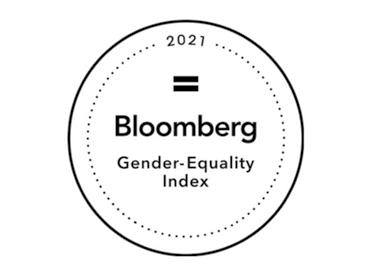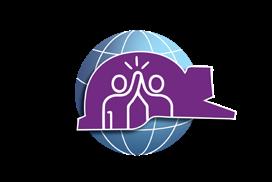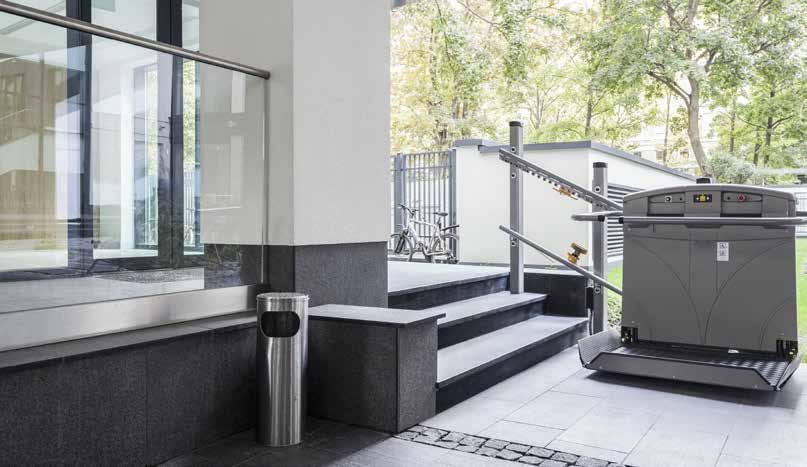
5 minute read
Involving disabled people in mining
INCLUSIVITY
With such a significant number of persons with disabilities in the country, it is imperative that they are afforded opportunities to be economic participants across various sectors of the country, including the mining sector. This means including persons with disabilities through direct employment or affording them business opportunities.
Advertisement
Different mining companies have various initiatives aimed at including and accommodating disabled persons in the industry. Here are a few:
Harmony Gold: Preferential Procurement Strategy
Harmony Gold’s Preferential Procurement Strategy and Enterprise Supply Development Framework was approved in 2019 and formulated with the assistance of an external consultant. “We devised a strategy and it was approved by Harmony’s board of directors in the social and ethics committee,” says Tom Dewet, supply chain manager, Harmony Gold. Using enterprise development initiatives, the strategy includes an internal process to assist potential contractors with challenges they may encounter.
The strategy is meant to increase participation of previously disadvantaged designated groups in the mining industry’s economy – which includes persons with disabilities. To ensure that persons with disabilities are not excluded from economic participation, the strategy prioritises companies owned by persons with disabilities or employs disabled people. “Where those people can do the work, they are allowed to do so. When it comes to adjudication processes, the fact that a person is disabled is in no way or form held against them,” says Dewet. In 2019, Anglo American announced its membership of The Valuable 500, a worldwide movement to put disability inclusion on board agendas and encourage global business leaders to recognise the value of the world’s 1.3 billion people living with disabilities.
Launched at the World Economic Forum’s Annual Summit this year, The Valuable 500 now has more than 200 members. “Our people are critical to all that we do and we strive to promote an inclusive culture with equality of opportunity for all – regardless of gender, race, ethnicity or disability – enabling us to appoint the right person to the right role, so that everyone can bring their full self to work,” says Mark Cutifani, chief executive, Anglo American.
As part of the commitment to The Valuable 500, Anglo American will continue to foster an environment that involves, supports and enables colleagues living with a physical disability, learning difficulty or mental health issue to reach their full potential. The company’s Enabling You colleague networks, which were launched in 2018, continue to provide education and awareness, extending support to those colleagues who also care for someone living with a disability.
“Through our commitment to The Valuable 500, we look forward to working with the organisation and its community of members to do more to put disability on the business leadership agenda,” Cutifani says. Anglo American will continue to implement its global mental health framework to increase mental health awareness, support colleagues, remove any stigma, and encourage openness to build and sustain a safe and positive workplace, with 5% of global colleagues being trained mental health first aiders by the end of 2020.
Caroline Casey, founder of The Valuable 500, says, “Anglo American has already made great strides in ensuring
INVOLVING
DISABLED PEOPLE IN MINING
According to the 2011 Census, approximately 7.5% of South Africa’s population consists of persons with disabilities. The South African Human Rights Commission states that “people with disabilities are at risk of economic isolation with no prospect of securing employment”.
INCLUSIVITY

disability inclusion is on its board agenda, particularly in mental health.” She also explained the advantage of including persons with disabilities in the workforce. “Businesses worldwide are missing out on an US$8 trillion (R115 trillion) market opportunity through failing to include the disabled community, and we encourage more businesses to take note and put this crucial issue on their board agendas.”
Petra Diamonds: NCPPDSA partnership
Petra Diamonds formed a partnership to support the National Council for People with Physical Disabilities in Southern Africa (NCPPDSA) in 2014. The company’s first initiative in the partnership was to restore and reopen the Ikageng Skills and Entrepreneurial Development Centre in Kimberley. The centre consists of a workshop that employs persons with disabilities to produce various products such as jewellery.
A minibus was also purchased and modified for the specific requirements of people with disabilities to transport them between their homes and the workshop. In 2015, Petra Diamonds entered into another partnership with the NCPPDSA, this time to create income-generating, selfemployment and entrepreneurship opportunities for people with disabilities by establishing a glove-making factory at the workshop. A cooperative will be registered, with all assets to be registered, managed and insured by the NCPPDSA until full production and profitability have been established.
Persons with disabilities have special needs that need to be considered by businesses. Sometimes creating an environment that accommodates for the various needs of persons with disabilities can be challenging.
For this reason, the Disability and Reasonable Accommodation Toolkit was developed to assist companies in the mining and minerals sector with tools that will allow them to ensure concerted efforts are put in place to incorporate people with disabilities in the workplace. Since the establishment of the Mining Qualifications Authority (MQA) in 1996 – as a result of the Mine Health and Safety Act (No. 29 of 1996), and later established as a SETA in 2000 under the Skills Development Act (No. 97 of 1998) – the MQA was required to ensure that, based on the requirement of the National Skills Development Strategy, 4% of learners and employees in the sector should be people with disabilities.
The mining sector is one of the largest contributors to South Africa’s economy; however, it is also a sector that experiences accidents from time to time. The accidents that take place result in injuries, temporary and permanent disabilities, and even fatalities. Employees that become disabled due to work injuries in the mines need to be incorporated into the workplace. Equally, employers are also encouraged to participate in skills development by including employed and unemployed learners with disabilities in all their training and development programmes. Although the underground environment may not be suitable for certain types of disabilities, there are opportunities that can be created within organisations to accommodate both new employees and learners with disabilities. The toolkit will assist to: • guide employers regarding the intake of employees and learners with disabilities for effective inclusion in the mining and minerals sector • equip employers with cost-effective and reasonable options for ensuring that employees access their worksites • provide ideas and recommendations for improving accessibility for people with disabilities and in turn the general public. The mining industry has many opportunities for economic participation. There is no reason for persons with disabilities to be excluded from being economic participants in mining. It is only fair that persons with disabilities also have access to those opportunities in an environment that accommodates their needs.










